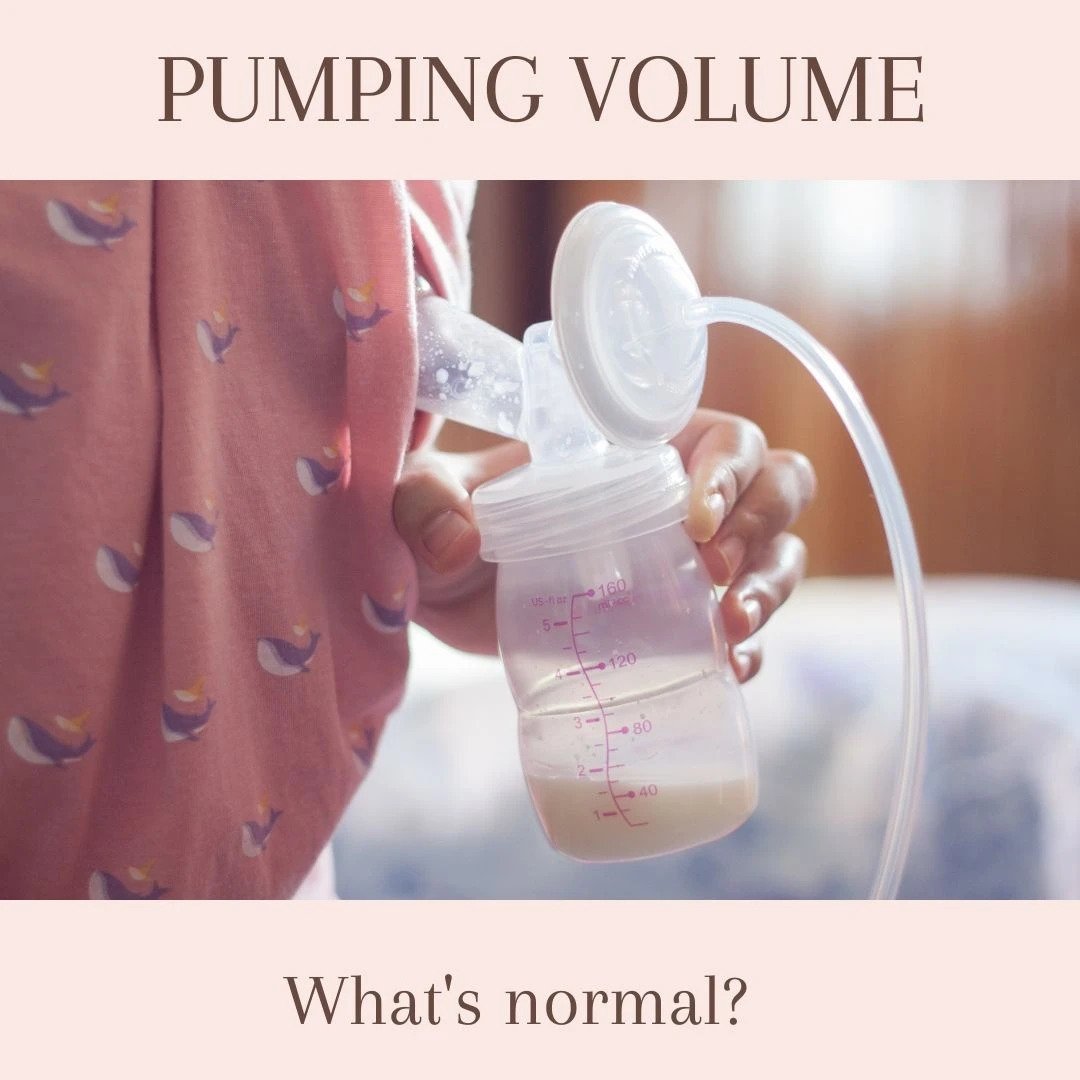
Pumping Volume- what's normal?

Let me first start by saying that every mom is wonderfully and uniquely made, so there isn't exactly a "normal" when it comes to pumping volume. Different moms also have different breast storage capacities, so while one mom might hold 6oz of milk another mom will only store about 2oz.
Your storage capacity will determine how often you need to pump in order to get the daily volume that your baby needs. If you are an exclusively pumping mom, typically you are aiming to produce 25-30oz of milk in a 24 hour period (by 4-6 weeks postpartum). For some, this might only mean 6 pumping sessions a day but for others it might mean much more frequent pumping.
As an IBCLC in practice I usually expect an exclusively pumping mom to pump 2.5-4oz at each session. For moms who are breastfeeding full-time and are pumping to have a bit of a stash or are trying to increase their milk volume then typical pumping volume is between 0.5-2oz TOTAL after nursing. If a mom gets more milk than this then it may mean she actually has an oversupply. It's important to have realistic expectations!
Pumping can be time-consuming and stressful. Milk output can vary between sessions/time of day and it's not unusual to have occasional days where you see a decreased volume. Many things can affect our milk supply such as stress, an aging pump or pump parts, poorly fitting flanges, hormonal changes that occur with menstruation or ovulation, anxiety, certain medications, illness, lack of sleep, and your nutrition and fluid intake to name just a few!
What it all boils down to is pumping is NOT easy! You are absolutely incredible and are doing the very best you can. Any milk you make for your baby is always better than none. Breast milk isn't an all or nothing type of thing. We know that babies benefit greatly from any amount of breast milk they receive! Don't beat yourself up over set-backs and try not to compare your nursing journey or pumping output to any other mom. Remember to reach out for support when you need it and always be gentle with yourself xox

